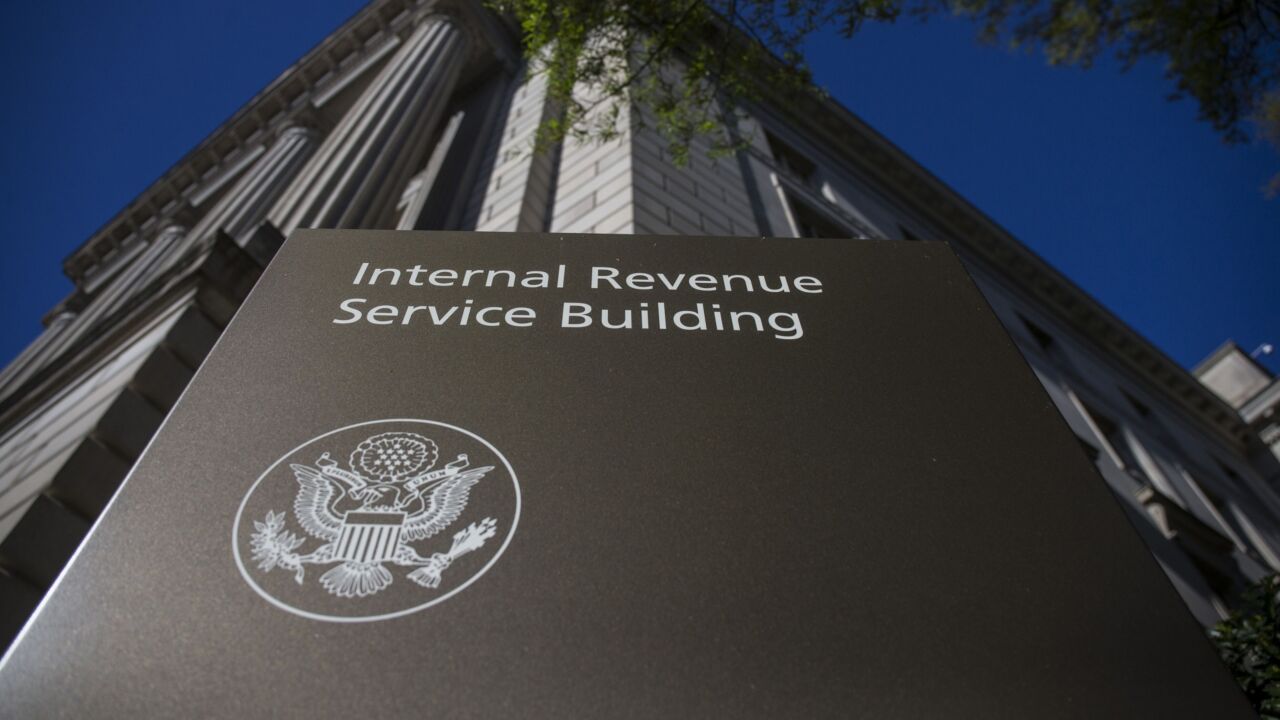If liberal and conservative advocacy groups can agree on anything, it’s this: A suite of more than three dozen or so corporate tax breaks that have expired over the past two years should stay dead.
Even so, there’s a bipartisan push among some lawmakers to renew them — even if that push will likely fail.
Congress has re-upped the temporary tax breaks in the past without much commotion, and many of the breaks still have wide support in both parties. But this time, fallout from the 2017 tax overhaul, reluctance in the House at more temporary breaks and a dwindling calendar of working days in Congress could lessen the enthusiasm for another renewal.

The breaks, collectively referred to as “extenders,” comprise a cornucopia of industry-specific provisions, often favored by lawmakers in districts they benefit. One would allow racehorse owners to depreciate the value of some horses more quickly. Another, that’s already been extended four times, gives a tax credit to coal producers, but only if the coal comes from Indian reservations. Others give tax breaks or credits for mine-safety equipment, companies in American Samoa and film projects in low-income areas.
One provision would extend a reduction in excise taxes that craft brewers and distillers pay when they sell barrels of spirits such as whiskey or gin. One problem: About 95 percent of the $4.2 billion in revenue lost from the perk actually goes to large companies, said Adam Looney, a senior fellow at the Brookings Institution who has researched the issue. Instead, many so-called craft whiskey producers actually purchase their whiskey from giant distillers and then slap their own labels on the bottled product, Looney said.
Margie A. S. Lehrman, chief executive officer of the American Craft Spirits Association, disputed Looney’s analysis and said that an extension of the tax break was an important goal for the trade association.
Critics of the breaks say that they’re an example of cronyism. Many target specific industries or companies without a strong policy rationale. Yet they also often get bipartisan support from lawmakers.
“It stinks to high heaven,” said Russell Latino, a vice president at the right-leaning Americans for Prosperity, on a call with reporters last month. “The only ones who are supportive of this are answering to those politically connected.”
As soon as next week, the House Ways and Means Committee could consider a package that would include extending the breaks through December 2020. The package could also include a 1 percentage point increase in the corporate tax rate to help pay for other Democratic priorities such as expanded tax credits for low-income households. Republicans, who control the Senate, are unlikely to support such a change, and Ways and Means Chairman Richard Neal, a Massachusetts Democrat, on Tuesday acknowledged the proposal may merely be an opening gambit for negotiations.
Last month, Senators Chuck Grassley and Ron Wyden, the senior Republican and Democrat on the tax-writing Senate Finance Committee, created five “task forces” to study what to do about 42 expired or expiring tax breaks that Congress has repeatedly resurrected, often long after they were allowed to lapse.
Americans for Prosperity, along with 11 other conservative and progressive groups, last month sent a joint letter to Grassley and Neal.
“Let what is dead remain dead,” the groups said in the letter. Wyden and Grassley introduced their working groups less than two weeks later.
Some lawmakers say a tax-extender bill is far from a fait accompli.
Representative Kevin Brady of Texas, the senior Republican on the House Ways and Means Committee, on Tuesday said he would not support another temporary extension for many tax breaks without other changes.
“The new tax code supersedes a number of them. Some have value, should be made permanent,” Brady said. “Others we think need to go.”
Brady and Grassley in a statement called the extenders’ proposal discussed by House Democrats on June 11 a “nonstarter,” arguing that Democrats were trying to use tax extenders as leverage in other tax-policy disagreements.
House Democrat Lloyd Doggett of Texas has proposed an extenders bill that would offset the cost by revoking the 2017 tax law’s expansion of the estate-tax exemption, a deal-breaker among Republicans. Some Democrats also want any bill to include an enhancement of the Earned Income Tax Credit, another provision that Republicans oppose.
The 2017 tax law razed the rationale for some extenders, or at least made them irrelevant for the taxpayers who previously used them.
Home buyers who make a down payment of less than 20 percent when getting a mortgage typically must pay premiums for private mortgage insurance to protect government agencies in case they default. A provision that made those premiums tax deductible expired at the end of 2017. The premium deduction was popular among low and moderate-income borrowers, who didn’t have as much money for a down payment.
However, because President Donald Trump’s tax law doubled the standard deduction, far fewer of those borrowers now itemize their taxes, reducing the perk’s relevance.
“The tax law obviously changed things. We are very aware of that,” said Lindsey Johnson, president of U.S. Mortgage Insurers, a trade group that’s pushing for an extension. Johnson said the group has had bipartisan support to extend the break and is talking with the Senate Finance working group to attempt to preserve it in a final bill.
— With assistance from Kaustuv Basu





